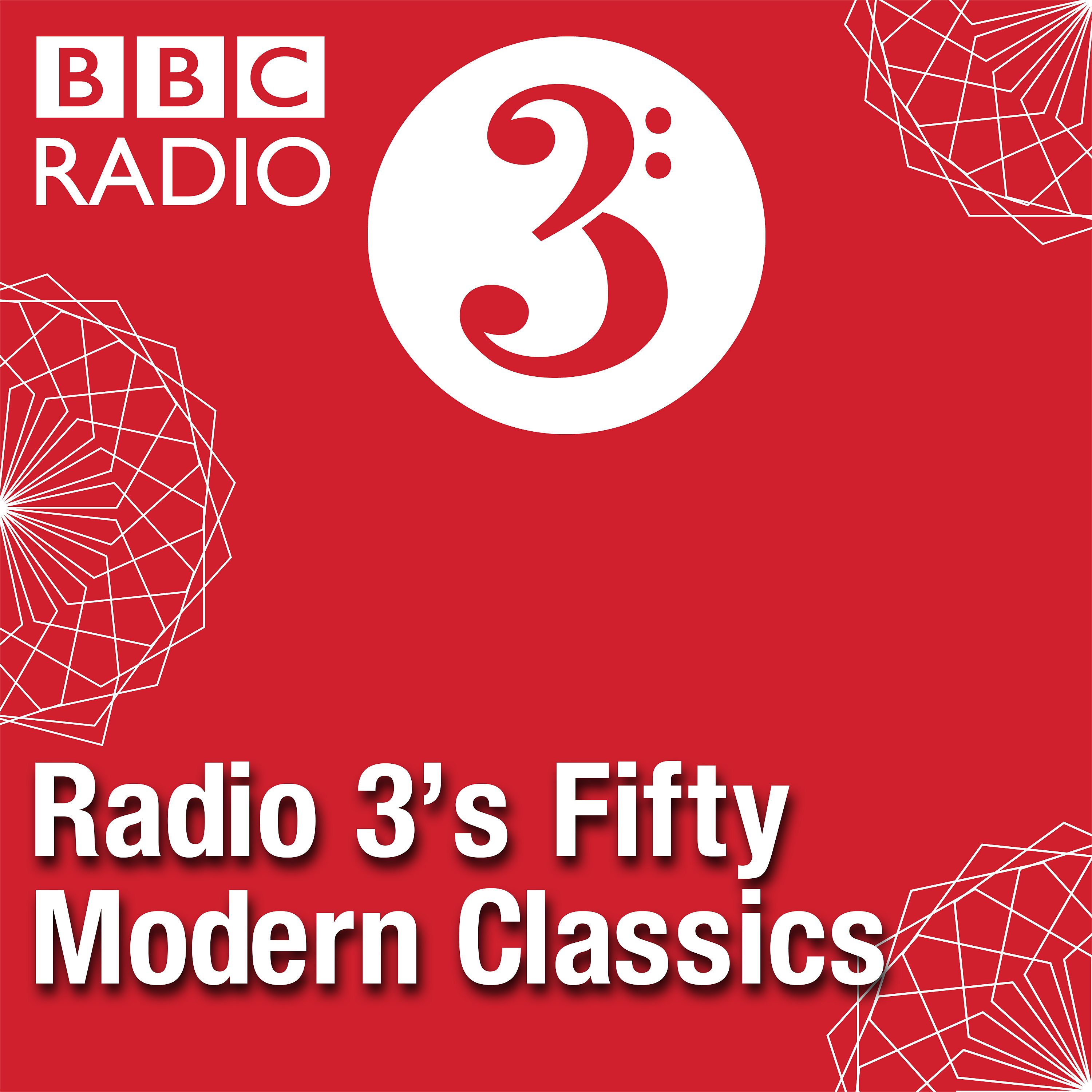

Radio 3's Fifty Modern Classics
BBC Radio 3
Artists, musicians and composers introduce fifty key pieces of classical music composed between 1950 and 2000. As featured in the BBC Radio 3 programme, Hear & Now.
Episodes
Mentioned books

Feb 26, 2012 • 11min
Toru Takemitsu's Kwaidan
Writer and musician David Toop celebrates Toru Takemitsu's soundtrack for Masaki Kobayashi's 1964 chiller Kwaidan, based on Lefcadio Hearn's retelling of Japanese ghost stories; film scholar Peter Grilli describes how the composer worked closely with the director and recording technicians to create a soundworld that was integral to the drama of the film.

Feb 19, 2012 • 12min
Luigi Nono's Al gran sole carico d'amore
Theatre director Katie Mitchell describes her first encounter with the music of Italian composer Luigi Nono and her subsequent staging of Al gran sole carico d'amore, an operatic work which interweaves stories from the 1871 Paris Commune and the Russian Revolution. Conductor Richard Bernas highlights the lyrical and communicative aspects of Nono's music and its place in the world of post-war serialism.

Feb 12, 2012 • 14min
Milton Babbitt's Philomel
Jazz pianist Ethan Iverson nominates Milton Babbitt's Philomel for soprano and tape, "a classic record that should be owned by all fans of the avant-garde"; Paul Griffiths explains how Babbitt used the timbral and rhythmic resources of the Mark II RCA Sound Synthesizer to help realise his own brand of twelve-tone music. And we hear the voice of the composer himself from recordings made by the BBC in the 1960s.

Jan 22, 2012 • 11min
Jonathan Harvey's Mortuos Plango, Vivos Voco
Film director Barrie Gavin selects Jonathan Harvey's Mortuos Plango, Vivos Voco, an electroacoustic piece made from the sound of the largest bell at Winchester Cathedral and the voice of the composer's chorister son. Commentator Gillian Moore describes how Harvey used technology at IRCAM in Paris to manipulate and integrate these two sounds, and we hear from Harvey himself on the significance of the bell's inscription and the qualities of its tonal spectrum.

Jan 15, 2012 • 14min
Karlheinz Stockhausen's Gruppen
Finnish conductor and music director of Ensemble InterContemporain Susanna Malkki pays tribute to Stockhausen's 1950s masterpiece Gruppen for 3 orchestras, and highlights some of the challenges to conductors in performing it; commentator Paul Griffiths places the work in the context of Stockhausen's early output, and explains how the shape of a mountain view in Switzerland dictated the work's tempo patterns.

Jan 8, 2012 • 12min
Luciano Berio's Sinfonia
Conductor Richard Bernas recalls his momentous first encounter with Berio's Sinfonia, a work which reflected and commented on the events of its time, from the Paris riots to the assassination of Martin Luther King, and whose third movement is an extraordinary assemblage of musical and literary quotations. Commentator Gillian Moore explains the significance of the texts which include Levi-Strauss's Le Cru et le cuit and Samuel Beckett's The Unnamable; and we hear from the composer himself, speaking about the work in 1991.

Dec 25, 2011 • 11min
Arvo Part's Cantus in Memoriam Benjamin Britten
Roxanna Panufnik nominates Arvo Part's Cantus In Memoriam Benjamin Britten, "beautifully simple and spiritual" music that she feels a strong connection to; while Paul Griffiths tells of Part's early struggle to find his own voice in Soviet Estonia and subsequent breakthrough with a radical new style he called Tintinnabuli.

Dec 18, 2011 • 11min
Morton Feldman's Extensions 3
Howard Skempton singles out Extensions 3 by the American composer Morton Feldman, a piece he found "liberating, inspiring, and radically different". Paul Griffiths places the work in Feldman's early output and highlights the challenges to performers of music which is both very slow and very quiet. Plus excerpts from a BBC archive interview in which Feldman himself describes his approach to composition.

Dec 11, 2011 • 10min
Conlon Nancarrow's Study No.21
Stephen Fry describes his delight and bewilderment at first hearing Conlon Nancarrow's Study No. 21 - also known as Canon X - for player piano. Nancarrow devoted his composing life to creating futuristic canonic studies for his custom-altered 1920s Ampico instrument, combining elements of jazz, Bach and Stravinsky, as we hear from the other voice in this episode, pianist Joanna MacGregor.

Dec 4, 2011 • 11min
Brian Ferneyhough's Bone Alphabet
Percussionist Steven Schick recalls how a chance meeting with Brian Ferneyhough led to the commission of Bone Alphabet, the composer's only piece for non-pitched instruments; and writer Paul Griffiths describes the work's physicality and rhythmic complexity.


